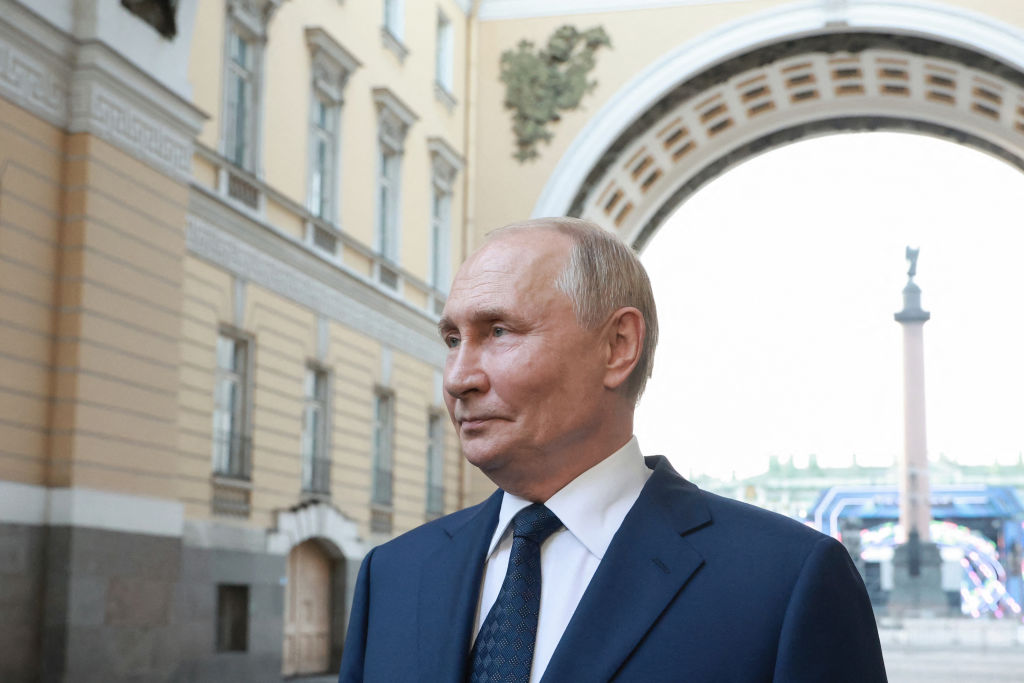Another six bite the dust. The British Embassy in Moscow, already pared to the bone, is being reduced by another six diplomats. Their accreditation has been withdrawn because they were ‘threatening the security of the Russian Federation’ by ‘conducting intelligence and subversive work.’ It is bad news for international stability as diplomatic links become more and more attenuated, but perhaps something of a tribute to Britain.
The expulsions reflect a sense that Britain is both a tempting and a legitimate target
The Russian media today has been running two strikingly similar stories, one built around a statement from the Public Relations Centre of the Federal Security Service (FSB), the other comments by the Russian Foreign Ministry’s reliably acerbic spokeswoman, Maria Zakharova. The upshot is that, in the FSB’s words, it ‘has received documentary materials confirming London’s coordination of the escalation of the international military-political situation.’
This is the largest expulsion in the past year, after the flurry of extensive tit-for-tat purges which followed the February 2022 invasion of Ukraine. In February, Austria, for too long something of a safe haven for Russian spies, expelled four staff from the embassy in Vienna ‘for behaving in a manner inconsistent with international agreements,’ and Moscow retaliated in kind. In March, another was kicked out from Tallinn when, in the words of Estonian Foreign Minister Margus Tsahkna, ‘the Russian embassy interfered in the internal matters of Estonia in an unacceptable way.’ Again, the result was a reciprocal expulsion.
Britain had expelled long-serving defence attaché Colonel Maxim Elovik in May as an ‘undeclared’ Russian military intelligence officer. It also closed several Russian diplomatic premises believed to have been used for espionage purposes, after two British men were charged with an arson attack in Leyton on behalf of a foreign intelligence service. Royal Navy Captain Adrian Coghill, the remaining British defence attaché in Moscow was duly declared persona non grata and given a week to leave.
These have all been reciprocal acts, whereas this most recent set of expulsions came out of the blue. Is it possible that some or all of the six were indeed spies? Of course: London has even more reason now to be gathering intelligence on a hostile and unpredictable Russia, and the safest way to place officers abroad is in an embassy, under diplomatic immunity.
However, beyond the age-old Russian assumption that Perfidious Albion remains its most subtle antagonist, this likely also reflects a sense that London is, indeed, continuing to play a crucial role in advancing the multinational effort against Vladimir Putin’s imperial war in Ukraine. There had been a cautious hope in Moscow that the new Labour government would be, if not any more friendly towards Russia, at least more interested in spending its money and political capital on domestic priorities. Instead, as Foreign Secretary David Lammy visits Kyiv alongside his American counterpart Antony Blinken, and Keir Starmer heads to Washington for a lightning trip expected to see clearance given for Ukraine to use long-range Storm Shadow missiles on military targets inside Russia, the sense is that, if anything, this government is even more ‘Russophobic’ in Moscow’s parlance.
The Russians are clearly trying desperately to prevent this. Putin even went on Russian TV to warn that if Ukraine hit Russian territory with western-supplied long-range missiles, ‘it will mean nothing less than the direct involvement of Nato countries, the United States and European countries in the war in Ukraine’ and that it means they would be ‘at war with Russia.’ However, it all seems in vain, and the green light is expected to be given.
Nonetheless, the expulsions reflect a sense that Britain is both a tempting and a legitimate target. Tempting, in that it can be used as a proxy for the United States. Just as Moscow is so far limiting its escalating campaign of direct sabotage attacks to Europe, while confining itself to propaganda, disinformation and cyber operations against the USA, so too bearing down on London is a safer way of trying to communicate resolve to Washington.
Britain is a legitimate target for Moscow because of its ‘coordination of the escalation of the international military-political situation’. Others call this leadership. As a Baltic parliamentarian told me this week, ‘Britain may not be able to be the biggest supplier of aid to Ukraine, but time and again it has stiffened others’ backbones’ and increased support from other countries. The UK’s pledge of 14 Challenger 2 tanks in January 2023, for example, was above all important in breaking a political stalemate and prompting subsequent transfers of larger numbers of US Abrams and European Leopard 2 tanks. Likewise, it is London that has been pressing a cautious US administration to allow wider use of long-range missiles.
Are the expulsions meant to be a punishment or a warning? Perversely, there are already some regarding it as Putin’s most generous accolade to the UK.







Comments